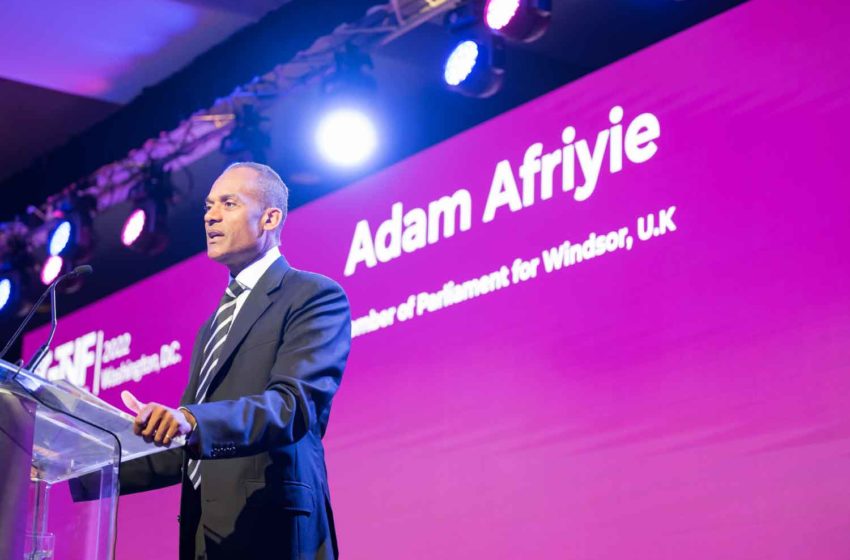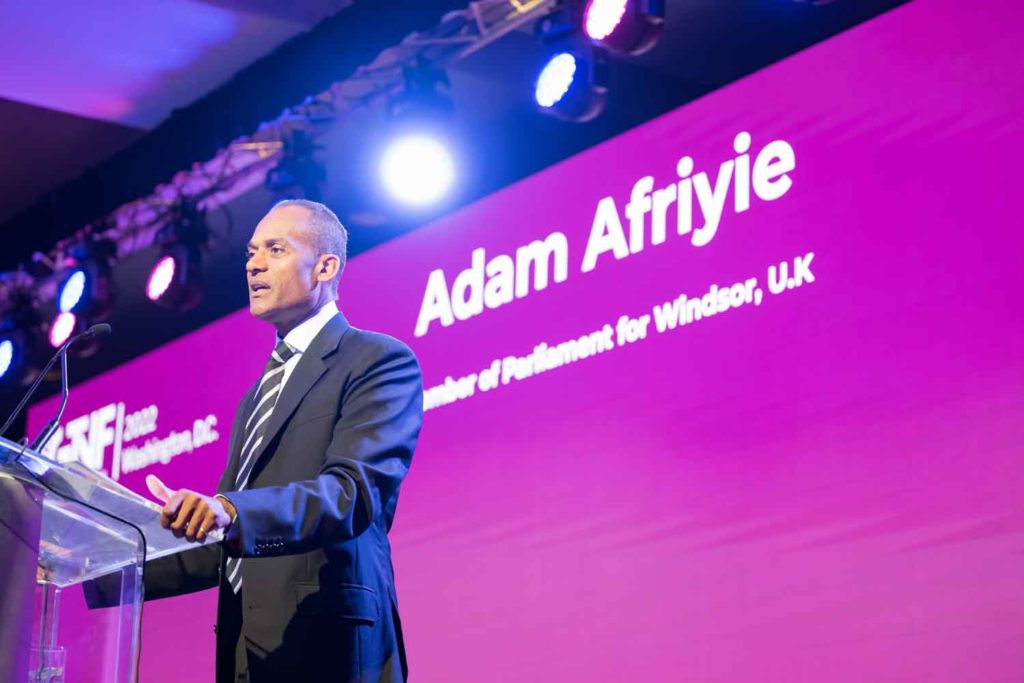Adam Afriyie


Adam Afriyie, Member of Parliament for Windsor and vice chair of the All Parliamentary Group on Vaping, examined the successful U.K. approach to tobacco harm reduction and the lessons it might hold for other countries.
This was an appropriate time to do so, he insisted, with life returning to a semblance of order following the Covid-19 pandemic and regulators around the world poised to make decisions—“life-and-death decisions”—about alternatives to smoking.
Despite progress, smoking still kills 75,000 people in England yearly. Britain’s National Health Service spends about £2.5 billion ($2.82 billion) annually treating smoking-related illnesses. Every year, tobacco use results in economic losses of £17 billion through ill health, absence and low productivity.
Afriyie distinguished four elements in the U.K. approach, which started with Britain setting a target to make smoking obsolete by 2030.
Second, the government and the health establishment accepted the evidence that vaping and other smoking cessation products, such as patches, pouches and snus, are all part of the legitimate arsenal of weapons against smoking—a conclusion that was reinforced by the Department of Health’s conclusion that vaping is at least 95 percent less risky than smoking. “What matters is the relative harm,” said Afriyie. Rather than relying on conjecture, emotion or the fear of Big Tobacco, the government relied on data, he noted.
Third, the government regulated vaping as consumer product, setting minimum standards for quality and safety, such as a requirement to sell e-liquids in child-resistant packs. This framework, said Afriyie, allows adults to make informed decisions while protecting children from marketing and harm. All new products must be registered with the Medicines and Healthcare products Regulatory Agency. While vapes are not considered medical products in Britain, this prerequisite installs a discipline among manufacturers to be cognizant of the evidence base behind their offerings, said Afriyie.
Finally, the government commissioned an independent review of the progress toward its smoke-free objective. Published in June, the Javid Kahn report concluded that Britain would miss its target if it continued on the current trajectory. To get the project back on track, Kahn suggested that vaping must be front and center of the drive to eradicate smoking. In light of widespread misperceptions about vaping—50 percent of general practitioners are unaware that vaping is less harmful than smoking—the report also recommended opening a conduit for the industry to communicate the benefits of switching from cigarettes to vapes directly to smokers.
While Afriyie was inspired by the level of technical innovations in nicotine-delivery products, he was less encouraged by the equally important innovation or evolution of regulatory frameworks internationally. For example, while heat-not-burn products have been thriving in Japan, vapes are nearly impossible to access in that country because they are treated as medical products rather than consumer products.
The World Health Organization, too, should adopt the U.K. approach, according to Afriyie. Unfortunately, the global health body’s direction of travel, he said, appears to be made in “smoke-filled” rooms, lacking transparency. Rather than basing its policies on science, said Afriyie, the WHO’s stance on tobacco harm reduction products appears to be subject to influences that are not directly to do with public health.
Concluding his presentation, Afriyie addressed each of the stakeholders in the tobacco harm reduction debate. “My message to smokers is please stop. And if you can’t stop, choose a vaping device or a heat-not-burn product—but move on. My message to investors: Britain is open for business.” His comment drew good-natured laughter, but Afriyie was only half joking, reminding his audience that when it comes to smoking cessation products, Britain is a gateway to the world. “The U.K. regulatory imprimatur on your documentation is a sign of quality and an aid to marketing and acceptance around the globe,” he said.
“My message to industry: Be good. Conduct open, honest research,” said Afriyie. “If the answers aren’t exactly what you want, don’t hide the results. Every bit of extra information and knowledge that we gain through research is useful.” To regulators, Afriyie stressed the importance of following the science. “Follow the U.K.,” he said. “Do not let the perfect be the enemy of the good.”
